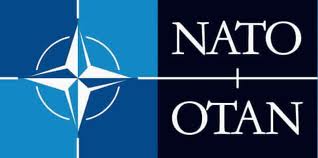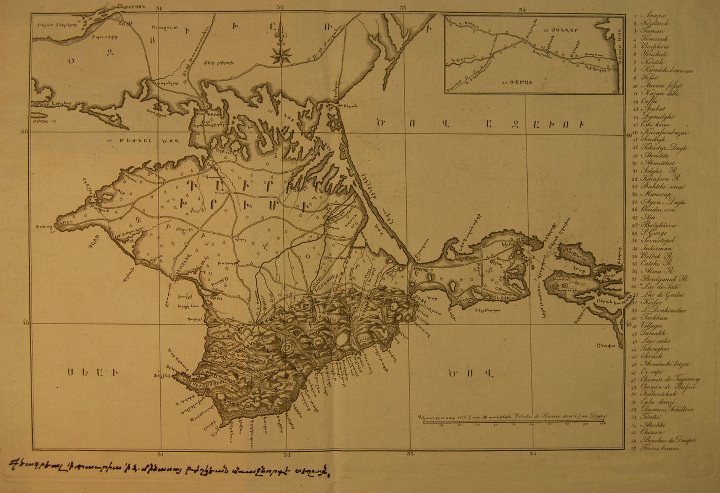Building Confidence in the South Caucasus: Strengthening the EU’s and NATO’s Soft Security Initiatives[Over] 7th Workshop of the PfP Consortium Study Group “Regional Stability in the South Caucasus”
On 14-16 March 2013, George Niculescu, our Head of Research, attended the 7th Workshop of the PfP Consortium Study Group “Regional Stability in the South Caucasus”, held in Tbilisi (Georgia). Mr Niculescu briefed a distinguished audience consisting of government officials, representatives of the EU and NATO, as well as of experts from regional and international think tanks and civil society on the EGF research paper on "A Pragmatic Review of Nagorno-Karabakh Conflict Resolution: Could Economic Incentives Help Break the Current Stalemate?", published last October jointly with Dr. Marat Terterov. Mr Niculescu thus concluded that “the exit from the current stalemate in the resolution of the Nagorno-Karabakh conflict would require starting up discussion around economic issues, and that the next step to this end might aim at setting up a comprehensive dialogue among interested businesses and experts from the conflicting parties together with international actors on post-conflict scenarios involving joint regional energy and infrastructure projects.” To see the Policy Recommendations issued in the aftermath of this workshop please click here. To look at the full text of the briefing please click here, and click here for the Powerpoint presentation.”
- Tuesday, 7 May 2013, 07:56
NATO Strategic Operations in Post-Cold War Security Point to the Core Role of Partnerships in the Way Forward[Over]
 By George Niculescu, By George Niculescu,
Head of Research, The European Geopolitical Forum
Introduction
Since the end of the Cold War, the future of NATO has been a topic for debate among politicians, bureaucrats, scholars and journalists familiar with the European and global security issues. NATO’s future role within the newly evolving global security structure has been a particularly relevant topic for such debates. The North Atlantic Alliance has so far proven itself to be a flexible enough entity in relation to adapting itself to post-Cold War security realities in order to survive the bygone era of the 20th Century. Both political and military leaders of the Alliance have understood the key lesson learned from the fall in relevance of the Warsaw Pact after the collapse of the communism in Central-Eastern Europe: the continuous adaptation of NATO to the new security challenges is the only viable alternative to the Alliance’s disappearance from the geostrategic map. READ MORE
- Tuesday, 7 May 2013, 07:56
Political Advisory Briefing: Egypt[Over] 
By Claudia Nocente,
Research Associate Global Security
February 2013
Key points:
- Egypt’s new administration between international praise and domestic unrest
- Morsi assumes pharaonic powers in an attempt to rid Egypt of Mubarak judges
- The felool take another shot in Egyptian politics
- The generals remain silent
- The Egyptian economy sinks. READ MORE
- Tuesday, 12 February 2013, 14:21
Regional Integration as a Conflict Management Strategy in the Balkans and South Caucasus[Over]
 By Anna Ohanyan, By Anna Ohanyan,
EGF Affiliated Expert on South Caucasus region building
There is much enthusiasm among researchers and policymakers alike concerning the pacifying effects of trade and broader interdependence among states. The European Union is an often cited example of greater regional integration as a way to enhance peace and security among neighboring states. This comparative regional study draws from the cases of the Balkans and South Caucasus in order (1) to offer a descriptive account of patterns and processes of regionalism in politically divided conflict areas, and (2) to examine the extent to which such regional engagement can positively affect ongoing conflict management efforts in a given conflict region. The study advocates promoting regional structures as a new and potentially effective approach to peace-building and security enhancement, toward managing the many 'frozen conflicts' both in the Balkans as well as in the South Caucasus. READ MORE
The OSCE’s ‘Asia Pivot’? Implications of the Mongolian Accession[Over]  Paul Pryce Paul Pryce
EGF Affiliated Expert on Conflict Management and the OSCE Institutions
On November 21st, 2012, a surprising announcement was made in Vienna. Mongolia had acceded as the 57th participating State of the Organization for Security and Cooperation in Europe (OSCE), the world’s largest regional security organization. Mongolia has effectively been an observer state since 2004, involved in the OSCE’s Asian Partners for Cooperation together with Japan, South Korea, Thailand, and Afghanistan. Contributing to the surprise of the announcement, the country’s bid for full participation in the work of the OSCE had only come in late October 2011, when the Lithuanian Chairmanship received a formal letter from the Mongolian government stating their willingness to comply fully with the terms of the Helsinki Final Act, the Charter of Paris for a New Europe, and other documents integral to the OSCE.
Click here to read more.
The evolution of European and Euro-Atlantic policy making in the wider Black sea: EU and NATO attempts at strenghening regionalism in an area of strategic interest[Over] 
Debates about the geopolitical, geo-economic and strategic significance of the wider-Black Sea (WBS) region have become fashionable amongst Western policy makers and the international scholarly community since the end of the Cold War. While the Black Sea represented a “front line” in the stand-off between rival superpower blocks during an age which now seems to have slipped into the bygone days of our youth, the major geopolitical realignments which have taken place in Eurasia during the last two decades have evidently led to our “re-discovery” of one of the world’s most historically significant geostrategic playing fields. To read more click here.
- Wednesday, 1 August 2012, 20:27
China and the Iranian Nuclear Crisis: Between Ambiguities and Interests[Over]  Djallil Lounnas, Djallil Lounnas,
EGF Affiliated Expert with focus on Insurgency and Trans-national radicalism in North Africa and Sahel-Sahara
This article analyses, the complex relationship between Tehran, Beijing and Washington on the Iranian nuclear issue. Indeed, China’ policy towards Iran has often been described as ambiguous, in supporting Washington, on the one hand, while protecting Tehran, on the other hand. In this article, we argue that, in fact, Beijing policy vis-a-vis Tehran depends on the state of its relationships with Washington. Indeed, a closer analysis shows that China is using Iran as a bargaining chip with the United States on, among others, two key security issues, i.e., Taiwan and the oil supply. The guarantee of a secured oil supply from the Middle-East in addition to a comprehensive policy of the US with regard to Chinese security interests in Taiwan as well as the use of smart sanctions against Tehran, which would thus take into account, to a certain extent, Beijing economic interests in Iran, are, indeed, the guarantee of Beijing’ support to the US policy towards Iran. Click here to read more.
- Friday, 6 July 2012, 05:01
|
|